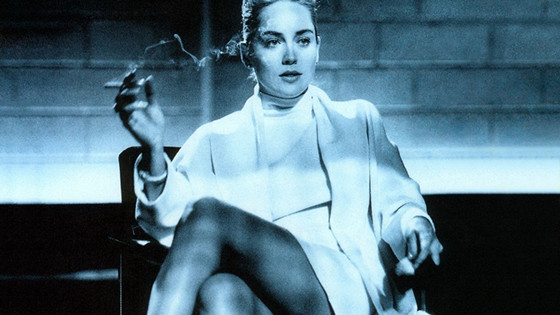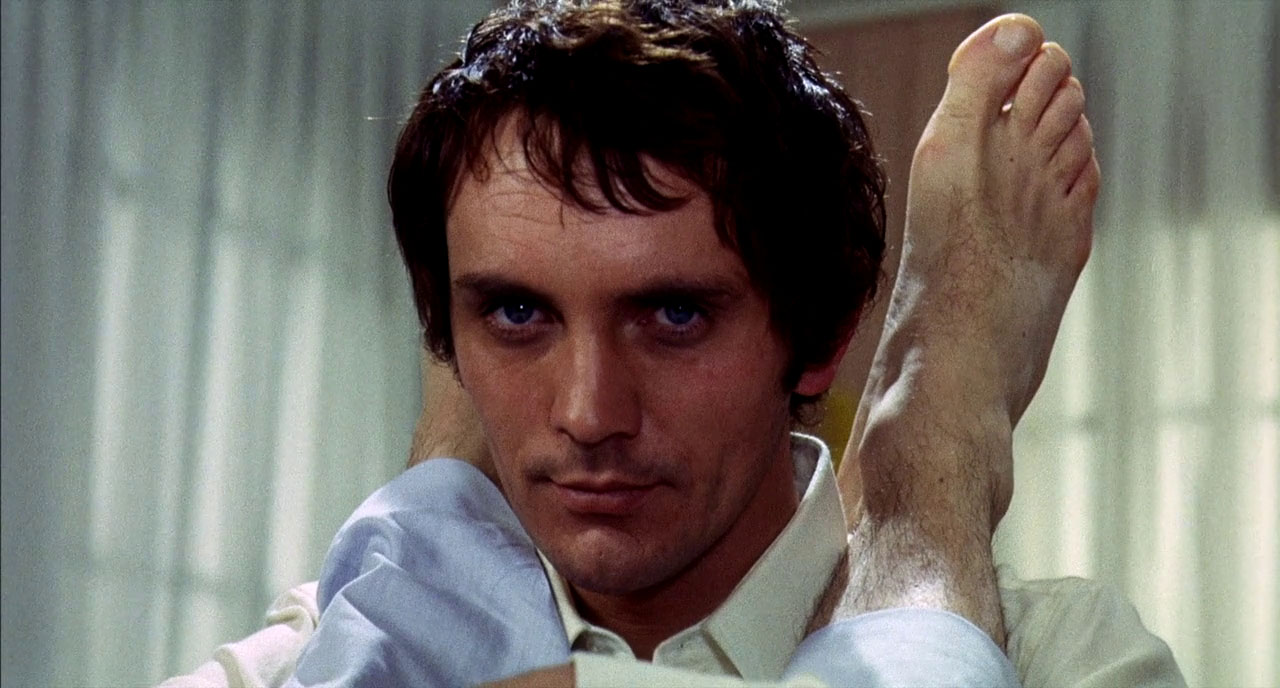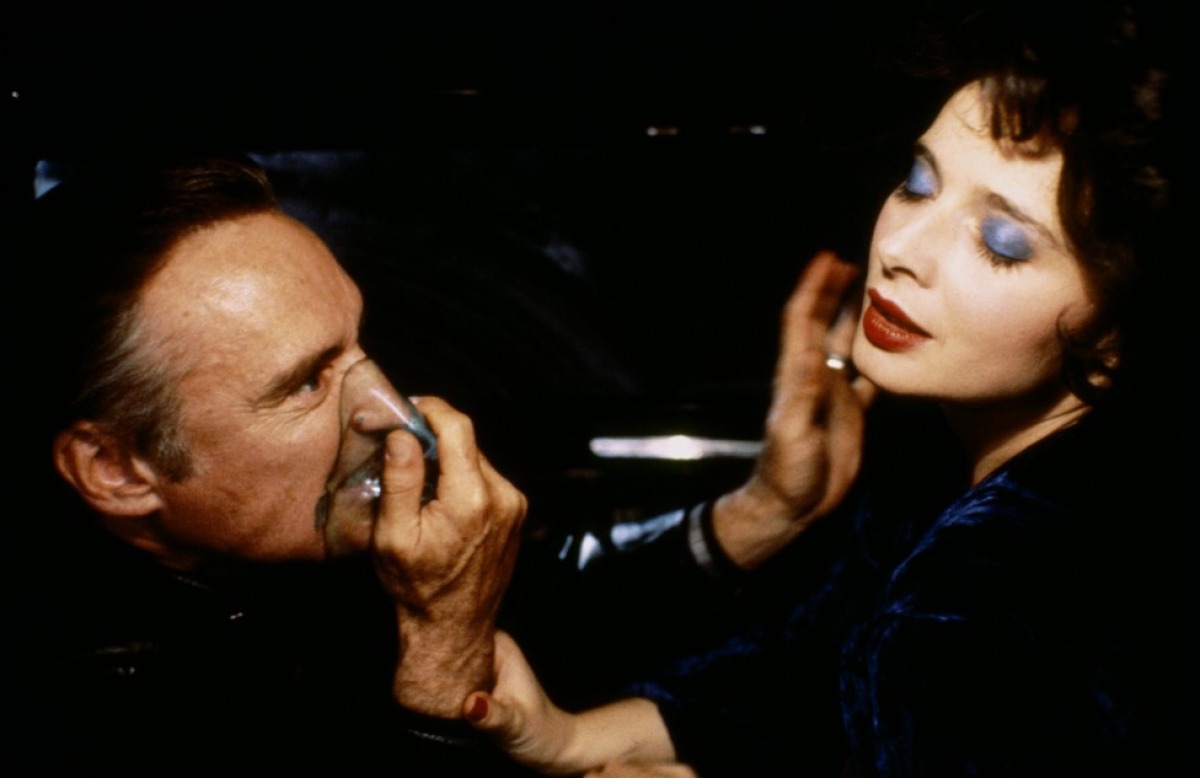5. Swimming Pool

Is our erotic attraction simply the product of our imagination? This is a question that viewers of François Ozon’s Swimming Pool must grapple with. In many ways, the film explores similar ideas to Blow-Up but from the view of a crime novelist rather than a photographer.
The film follows the author of mystery novels, Sarah Morton (Charlotte Rampling) who takes a trip to France, to stay in her publisher’s property there. While sojourning, she meets Julie, supposedly her publisher’s daughter. Soon, she finds herself involved in a plot strikingly similar to her novels. In the process, one is never really sure if what one sees is real or the product of the imagination. As with Eyes Wide Shut, Swimming Pool explores whether one’s imagination can create erotic experiences beyond the confines of reality?
4. Basic Instinct

Paul Verhoeven’s Basic instinct explores the age-old question as to whether Eros is a destructive passion that leads to madness. Featuring a self-destructive investigator, Nick played by Michael Douglas, the film explores the ways sex can be a destructive addiction, as Nick falls for a suspect in a murder case. The suspect is a novelist named Catherine, played by Sharone Stone. Stone’s character raises the possibility that murder can be an aesthetic act, one that can in fact exceed the imagination.
Of course the film is more famous for a particular scene featuring the absence of underwear and uncrossed legs. But the warnings of sexual love do resemble those made by Ancient philosophers and Verhoeven has proven himself a philosophical filmmaker with his investigations into sex and violence. However, one should also mention that Pedro Almódovar’s work also explores the strange and violent gyrations of Eros, but in a less heteronormative way—although, in fairness, there’s nothing really normative in Verhoeven’s subversive films.
Indeed, it would be difficult to pick just one film of Almódovar’s, but his extreme blends of the thriller genre with melodrama bespeak the strangeness of sexual transformation but almost all of his films suggest the need to embrace sexual transformation.
3. Teorema

Teorema explores the idea of sex as related to the divine. Shot in the style of a thriller it examines how members of the same family react differently after sleeping with a visitor who seems divine. In this way, the various powers and meanings of sex are explored as well as the erotic qualities of religious experience and worship.
The visitor’s sexuality provides deep consolation but when he leaves, they are confronted with the emptiness of their lives. He has affected them differently. Thus, Eros both saves and condemns, almost in equal measure. There is something almost pagan in the idea that the divine is not beyond but rather part of, indeed, embodied through the mysteries of sex.
However, Christianity has a long history of a sensual experience of the divine. As such, this film breaks down the distinction between the spiritual and the sensual realms, a problematic distinction that has haunted philosophy as much as theology.
2. Blue Velvet

Lynch’s films examine the levels of the psyche and the way love can exist in various guises from the sweet and virginal to sordid and destructive. Blue Velvet features a world of wholesome suburbs and a world of violence, crime and transgression, though both are in some sense illusory. Neither world is quite true to life. Lynch stages figures representing demonic evil against figures representing angelic decency and those who exist between the two. But the world of suburbia is itself oppressive and repressive, but so too is the world of endless transgression and primal violence.
Although heavenly suburbs may be boring, should one really favour hell? Blue Velvet explores the split psyche, following the character of Jeffrey Beaumont (Kyle MacLachlan), whose sense of innocence is challenged when he falls for the femme fatale figure of Dorothy (Isabella Rossellini), and they engage in sadomasochistic relations.
1. Broken Mirrors [Gebroken spiegels]

Broken Mirrors is a thriller that isn’t exactly erotic, but rather critiques the erotic as framed by male desire. A powerful feminist film by Marleen Gorris, it explores the way sex and capitalism can be used to exploit and abuse women. Indeed, male pleasure in sex has often been viewed as linked to exploitation in feminist theory and philosophy. This tradition may have started with Mary Wollstonecraft’s analysis of the dangers of certain concepts of sensuous beauty and was continued through contemporary scholarship such as Laura Mulvey’s analysis of the male gaze and Naomi Wolf’s The Beauty Myth.
Broken Mirrors brilliantly juxtaposes women sex workers in a brothel and a psychopathic serial killer-businessman who enjoys humiliating women. Indeed, the link between male aggression in the corporate world and in the bedroom is intimated throughout. The most endearing male character featured is a homeless man excluded from the corporate world, possibly because he of his lack of aggression.
Gorri’s film makes a persuasive case that the erotic very often functions as an aspect of male pleasure and is therefore linked to the exploitation of women. When the sex workers encounter the killer, there is the strong message that women’s solidarity can not only preserve dignity even in the most horrific circumstances, but that the brutal, demeaning male gaze can be challenged when exposed. The film ends with the message that women working together can resist exploitative male domination.
Although Broken Mirrors stands out as a thriller exploring sex and philosophy in relation to ideas of women’s exploitation and emancipation, there are other worthy mentions. Pandora’s Box explores the way sexuality can overcome rationality and follows a woman more sinned against than sinning. Another silent film with thriller elements that concerns how male libido can punish women is the wonderful film Ménilmontant, which contrasts but also connects an innocent sense of erotic playfulness with murder and destitution.
While these last examples may constitute something of a downer, this list has attempted to explore the various aspects and implications of Eros, including, ironically the unsexy ones.
Author Bio: Aleks Wansbrough has a PhD in visual arts and has written for academic publications as well as mainstream ones on film and philosophy. He hopes someday to make a feature film himself.